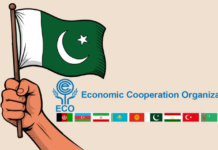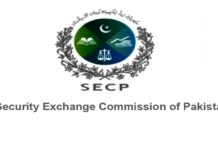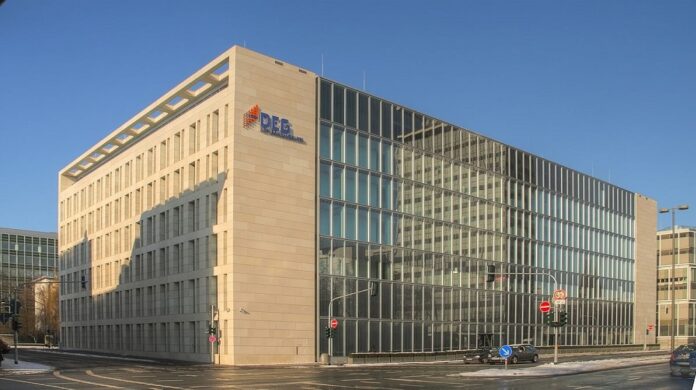The German development finance institution known as DEG wisely goes by its acronym. Its full name, Deutsche Investitions – und Entwicklungsgesellschaft mbH, is bit of a mouthful. Unfortunately ( or fortunately, depending on how you look at it), it is a name that Pakistani insurance company TPL Insurance is just going to have to get used to.
In a notice issued to the Pakistan Stock Exchange (PSX) on October 20, TPL Insurance said they had accorded their approval for an equity investment by DEG of 19.9%, by way of fresh issuance of ordinary shares other than by way of rights issue.
“While legal and financial due diligence has already been carried out by DEG, the management of the Company has been authorized by the Board for negotiation and finalization of deal agreements as well as obtaining of requisite corporate and regulatory approvals…we shall keep our shareholders updated with respect to this transaction by making further announcements as and when the transaction progresses further,” the company said.
DEG is a wholly owned subsidiary of KfW Group, which is a German-state owned development bank formed in the aftermath of World War II (the funds for it came from the Marshall Plan, which was the billion-dollar financial aid package the Americans gave to Europe for reconstruction).
Today, KfW is the third largest bank in Germany. Its subsidiary, DEG, was formed in 1962, and has morphed into one of the world’s largest private development financiers. Its reach is quite extensive: in 2019, it spent €1.5 billion, the majority of which was in companies located in Asia, where it also has the most representative offices (New Delhi, Bangkok, Singapore, Jakarta), and satellite offices (Dhaka, Colombo, Yangon, Hanoi).
Despite the lack of a Pakistani office, DEG has had Pakistani clients before; it previously helped Engro Energy set up a power plant in 2016, and finance its skills training. In 2019, it signed an agreement to finance three wind farms in Sindh, for $37.4 million. In 2017, it held a 17.96% in Orient Power Company in Lahore (which was not mentioned in the 2018 or 2019 annual reports).
But the company’s investment in TPL Insurance is somewhat curious, particularly because TPL is not your average insurance company (TPL Insurance declined to comment on the matter, citing a non-disclosure agreement until the deal agreement was finalized).
Insurance in Pakistan, for the longest time, was dominated by one player: State Life Insurance. In 1972, 32 insurance companies were forcibly nationalised, and folded into one State Life Insurance under Prime Minister Zulfikar Ali Bhutto and PPP’s nationalization agenda. The state of affairs would stay this way, until 1992, when private insurance players were allowed back in the game, under then Prime Minister Nawaz Sharif, and his privatisation process.
It was in this new environment that TPL Insurance was incorporated as a company in 1992. But in reality, the company really took off in 1999, when the company sought a vehicle tracking licence. At the time, motor insurance, or tracking services, was a non-existent industry, but TPL saw an opportunity. More people in Pakistan were going to buy cars, and as history would have it, more people’s cars were about to be stolen.
In 2001, the company started fleet management and stolen vehicle recovery services. What was to become the data location and tracking services TPL Trakker Ltd. helped boost the sales of TPL Insurance, as the company was able to really start selling and pitching motor insurance as a necessity (and in Karachi in the late 2000s, it really was).
In the general insurance, or non-life insurance space, Adamjee dominates with a 26% share, followed by EFU General Insurance at 24%, and Jubilee General Insurance at 12%. TPL Insurance is a small fry in comparison, as it is the sixth largest general insurer in the country. But it has a decent foot in the market, as the third largest motor insurer, and the largest distributor of auto insurance through dealerships in the country.
It also has time on its side. Pakistan has an abysmally low insurance penetration rate, even when compared to other countries with similar per capita income. In 2019, the insurance penetration in Pakistan was at 0.9% of GDP. This is much lower than India’s penetration, at more than 3.6%, the region’s average of 2.2%, the emerging markets average of 3.2%, and the global average of 6.3%.
But on the bright side, this means the only way to go from here is up. The gross premiums of Pakistan’s entire insurance industry has a five-year compounded annual growth rate (CAGR) of 17.7%, from Rs136.3 billion in 2013, to Rs308 billion in 2018 (non-Life grew at a relatively lower CAGR of 9.6%). Meanwhile, TPL Insurance has a five-year CAGR of 23% during the same time period.
TPL Insurance is also part of a larger corporation, TPL Corp, the holding company. (In 2017, TPL Trakker Limited was renamed TPL Corp Limited, which now controlled TPL Insurance and so on, while the data location and tracking services were incorporated into a separate company, called TPL Trakker Ltd.) TPL Insurance is not the only company within that group to be making interesting choices this year.
TPL Trakker Ltd was in the news for initiating an initial public offering (IPO) this July, which was the second IPO of this year on the exchange. Meanwhile, TPL Properties sold its flagship property, the 28-story Centrepoint in Karachi to Bank Al Habib, in a much publicised sale. And perhaps even more interestingly, it bought the 129-year-old Katrak Mansion, a heritage building close to Frere Hall, which it plans to turn into a commercial property, and a museum.

























